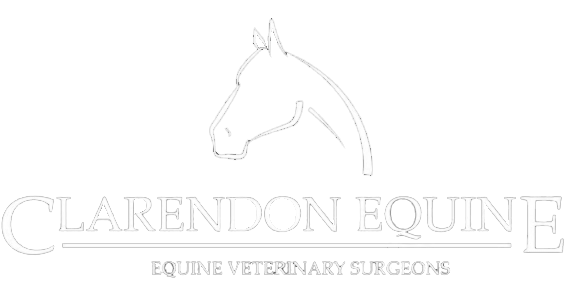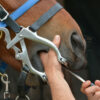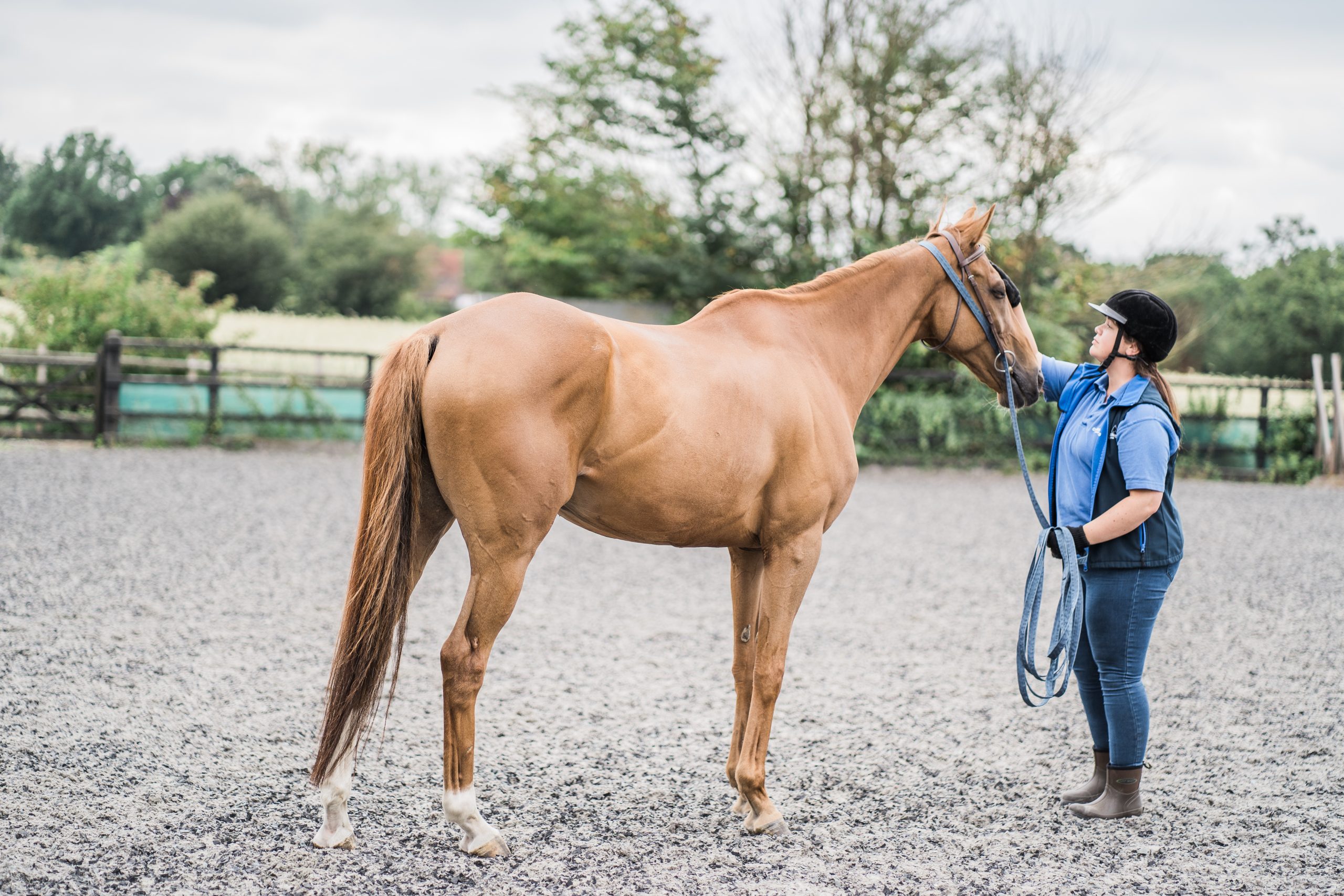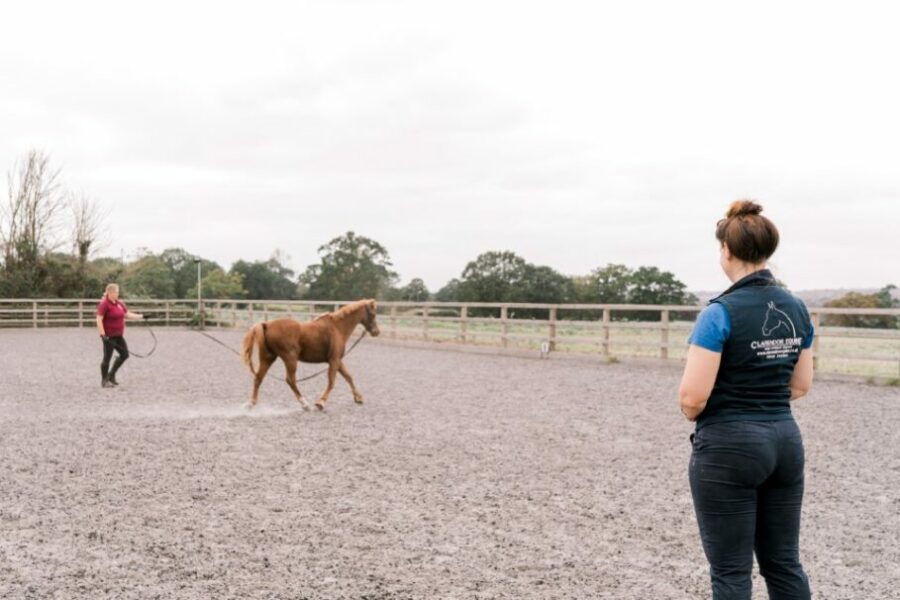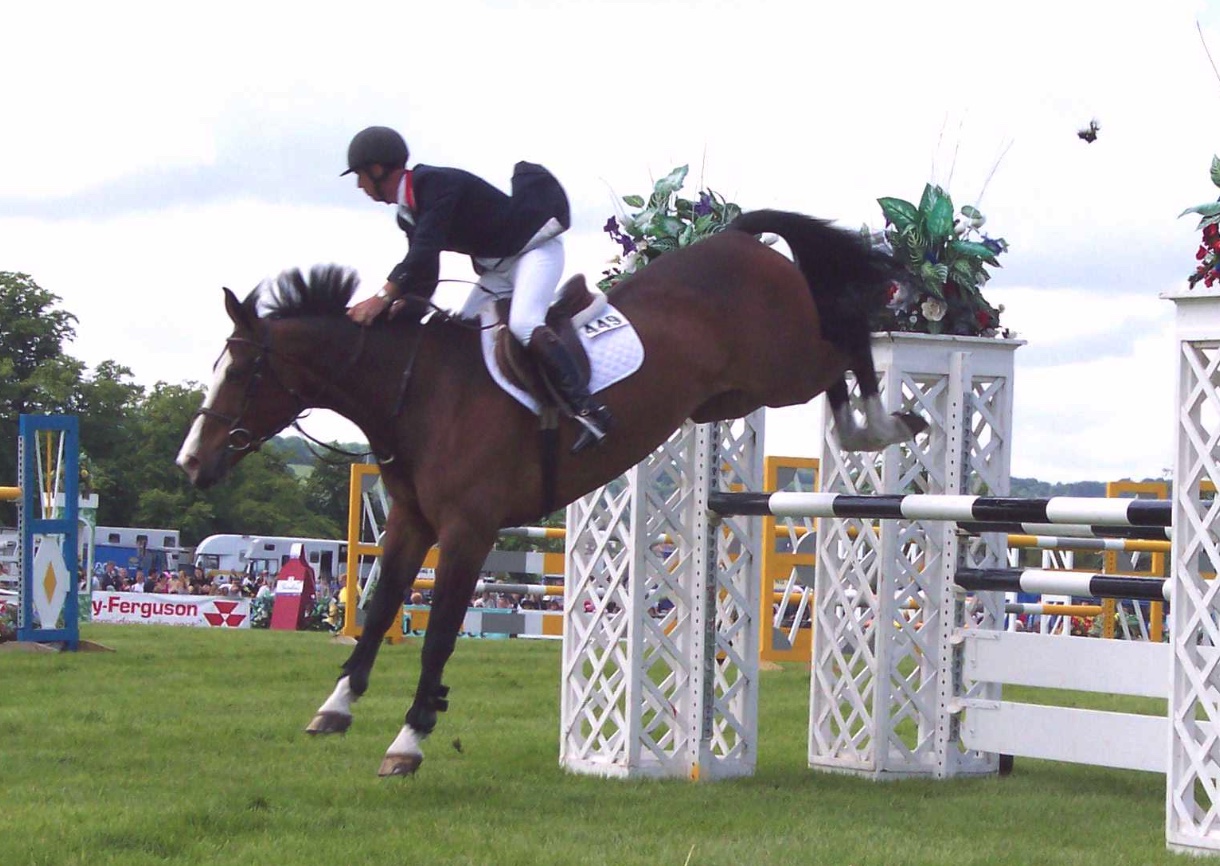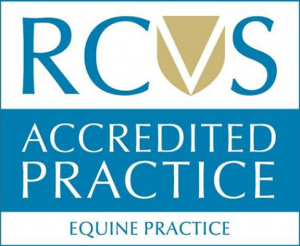Discover essential tips for maintaining your horse’s oral health with our comprehensive guide to Equine Dental Care, covering common issues and treatments.
Regular dental care ensures your horse’s health and general well-being.
In this comprehensive guide to equine dentistry, we’ll discuss the importance of regular dental checks for the early detection of potential issues and the importance of customised preventative plans.
We’ll delve into the different growth stages of horses’ teeth and how diet impacts their development.
You’ll learn about professional techniques to treat these conditions, including rasping for overgrowths and specialised tools for removing fractured teeth.
Contact us today and discover how a Clarendon Equine Dental Plan will benefit you and your equine companion.
Table of Contents:
- Importance of Regular Dental Checks
- Developing a Customised Preventative Plan
- Horse Teeth Growth Stages
- Common Dental Abnormalities in Horses
- Treating Overgrowths in Horse Teeth
- Dealing with Fractured Teeth in Horses
- Wolf Teeth and Their Impact on Horses
- Sedation Options for Equine Dentistry Procedures
- Frequently Asked Questions Equine Dental Care
- Conclusion
Importance of Regular Dental Checks
The health and well-being of your horse are crucial, and one key aspect often overlooked is regular dental checks. These examinations play a vital role in the early recognition of potential dental problems, allowing you to develop a customised preventative plan for your equine companion. By taking preventive measures and scheduling regular check-ups, you can ensure your horse enjoys optimal health, peak performance during competitions or training sessions, and a higher quality of life.
Developing a Customised Preventative Plan
A comprehensive dental examination allows your vet to assess the condition of the teeth, along with gum and jawbone health.
Based on these findings, they’ll create a tailored treatment plan that addresses any current concerns while taking steps towards preventing future complications.
Regular dental checks for your horse ensure their comfort and contribute significantly to overall health and performance. Don’t wait until a problem arises – be proactive about equine dental care by scheduling routine examinations with a qualified professional today.
Important Takeaway: Regular dental checks are essential for equine health and well-being, enabling early detection of potential issues. Regular check-ups with an experienced vet are the key to preventing costly treatments later.
Different Stages of Tooth Development
The development of your horse’s teeth is an ongoing process that continues throughout its life. This ensures they always have strong and healthy teeth for grinding food effectively, which plays a significant role in digestion and nutrient absorption.
In addition to age-related tooth growth, other factors such as diet or workload can influence how your horse develops new teeth or experiences wear on existing ones.
Impact of Diet on Tooth Growth
Diet plays a vital role in tooth growth, especially when horses are fed concentrates like grains or pelleted feeds designed to promote rapid weight gain or performance enhancement.
These diets can cause accelerated tooth development compared to those who primarily graze on pasture grasses.
Common dental abnormalities such as overgrowths and fractured teeth are common issues that require attention from an equine vet for proper treatment.
“#Horse owners: Understand the stages of your horse’s teeth growth for proper dental care. Diet plays a key role in tooth development & wear, so feed accordingly.” #equinedentalcareClick to Tweet
Common Dental Abnormalities in Horses
Did you know that some horses have dental abnormalities requiring more frequent treatments than others, especially between the ages of one to four?
Early detection of these issues is essential to prevent further complications, such as discomfort while eating or working on the bit. This section will discuss common dental abnormalities and their impact on your horse’s overall health.
Thankfully, with regular dental check-ups at Clarendon Equine Clinic, our experienced professionals can identify potential overgrowth areas before they become a problem.
Fractured teeth lead to pain during feeding.
A fractured tooth may not be immediately noticeable but can cause significant pain for your horse when trying to eat. The sharp edges of a broken tooth might cut into their gums or tongue, making it difficult for them to chew properly and resulting in weight loss due to decreased food intake. Our skilled team at Clarendon Equine Clinic will carefully examine each tooth during routine dental checks so that any fractures are identified promptly and treated accordingly.
Besides these two common issues mentioned above, there could be other types of dental abnormalities affecting your horse’s well-being:
- Tooth decay: Just like humans, horses can also suffer from cavities which need timely treatment by a professional.
- Malocclusions: Misaligned teeth can lead to uneven wear and tear, causing discomfort and difficulty chewing food.
- Periodontal disease: Inflammation of the gums surrounding the teeth can result from poor dental hygiene or untreated dental issues. This condition might cause tooth loss if not addressed promptly.
Important Takeaway: Regular dental check-ups are essential for keeping your horse in top condition. They can identify issues like overgrowths and fractured teeth before they become problematic. Investing in routine care at Clarendon Equine Clinic will ensure your equine companion stays fit and healthy.
Treating Overgrowths in Horse Teeth
Overgrowths are a common dental issue that can cause significant discomfort for your horse. These overgrown areas often appear on the front upper teeth and back lower teeth, making it difficult for horses to work on the bit effectively. Overgrowths can lead to painful gum infections and further complications if left untreated. Fortunately, there’s an effective treatment available performed by skilled equine dentists.
Identification Process for Overgrowth Areas
The first step in addressing overgrowths is accurately identifying their presence during a thorough dental examination. A professional equine dentist will carefully inspect your horse’s mouth using specialised tools and techniques to pinpoint any problem areas requiring attention.
Rasping Technique Used by Professionals
An experienced equine dentist will gently use rasping to file down these problem spots. Rasping involves using specially designed instruments such as carbide or synthetic diamond blades that allow precise control while minimising discomfort for your horse.
- Gentle approach: The rasping process is carefully carried out not to cause your beloved companion unnecessary stress or pain.
- Sedation options: Sometimes, sedation may be recommended during this procedure if necessary based on factors like anxiety levels or neck issues (discussed more in Heading 7).
- Promotes overall health: By addressing these troublesome overgrowths early on through routine dental checks at Clarendon Equine Clinic (website), you can help ensure your horse’s long-term health and well-being.
Taking care of overgrowths in your horse’s teeth is essential to maintaining their overall dental health. By scheduling regular check-ups with a qualified equine dentist, you can catch these issues early on and provide the necessary treatment to keep your horse comfortable, happy, and performing at its best.
Important Takeaway: Rasping is the preferred method of dealing with tooth overgrowth as it offers precision control while minimising discomfort for your horse. Scheduling regular check-ups with a qualified equine dentist ensures your horse stays healthy and happy.
Dealing with Fractured Teeth in Horses
If you’ve experienced a toothache, you can easily understand the distress your horse may experience due to fractured teeth. These dental issues cause pain during eating and affect their overall health and performance. This section will discuss identifying fractured teeth and the removal process using specialised tools.
Identifying Fractured Teeth
Watch for signs such as difficulty chewing, dropping feed while eating, or unexplained weight loss. Some horses may show behavioural changes like head tossing or resistance to bridling due to the discomfort caused by these fractures. If you suspect your horse has a fractured tooth, consult Clarendon Equine, who will perform a thorough examination of your horse’s mouth.
Removal Process Using Specialised Tools
Once a fractured tooth is confirmed, it must be treated promptly to prevent complications such as infection or abscesses. The removal process typically involves sedation for safety and comfort, followed by rasping down sharp edges using carbide or synthetic diamond blades.
- Sedation: This ensures that your horse remains calm throughout the procedure while minimising stress on both parties involved – equine dentists are trained professionals who prioritise patient welfare above all else.
- Rasping: Equipped with specialised tools designed specifically for equine dentistry work. We carefully remove any jagged edges from broken teeth without causing additional harm, restoring functionality in your horse’s mouth.
Fractured teeth in horses can be complex, but they can be managed through proper identification and removal using specialised tools, Wolf teeth present an additional challenge that requires careful recognition of the condition and the appropriate procedure for their removal to ensure optimal performance from your horse.
Important Takeaway: Fractured teeth in horses can be identified through signs such as difficulty chewing or weight loss. If detected early on, equine dentists can address these issues promptly using specialised tools and sedation to remove sharp edges from broken teeth and restore functionality to your horse’s mouth. It is wise to be proactive in tending to our equine companions.
Wolf Teeth and Their Impact on Horses
One of the lesser-known dental issues affecting horses is the presence of wolf teeth. Small, vestigial premolars may appear to be of little consequence at first glance, yet they can cause considerable discomfort and impair horse performance. In this section, we’ll look at wolf teeth, how to recognise them in your horse, and why their removal might be necessary.
Recognising Wolf Teeth in Horses
Wolf teeth typically appear just in front of the first upper cheek tooth or, less commonly, on the lower jaw. They vary significantly in size – some being as small as a grain of rice while others may resemble a regular premolar. Watching for these during routine dental checks is essential since they’re often hidden beneath gum tissue or covered by feed material. The horse provides an excellent guide to help identify wolf teeth accurately.
By addressing wolf teeth issues promptly, you can help ensure that your horse remains comfortable and able to perform at their best during training sessions or competitions. Don’t hesitate to consult with an experienced professional like those at Clarendon Equine, who will be more than happy to guide you through this process and provide top-notch dental care for your equine partner.
Horse owners and vets must be aware of wolf teeth in horses, as their removal can improve performance. With that said, sedation options should also be considered when undergoing equine dentistry procedures.
Important Takeaway: Wolf teeth are small, vestigial premolars that can cause discomfort and interfere with a horse’s performance if not addressed. To ensure the best outcome for your equine partner, consult an experienced professional to remove any wolf teeth present to keep them comfortable and performing at their peak.
Sedation Options for Equine Dentistry Procedures
At Clarendon Equine, we understand that dental procedures can be stressful for both horses and their owners. That’s why we highly recommend sedation options to ensure a comfortable and safe experience during equine dentistry treatments.
Sedation is particularly beneficial in situations such as:
- Anxious horses who may become stressed or agitated during the procedure.
- Horses with neck problems that could make it difficult for them to hold their head still while being treated.
- Lengthy dental procedures where the horse needs to remain calm and relaxed throughout the treatment process.
When is sedation recommended?
If your horse falls into any of these categories, our experienced team at Clarendon Equine will discuss sedation options with you before scheduling an appointment. We always prioritise your horse’s well-being and strive to provide a stress-free environment during all veterinary services.
Benefits of using sedation during dentistry procedures
Sedating your horse has several advantages when it comes to equine dental care:
- Safety: A relaxed and cooperative horse allows professionals to perform thorough examinations without risking injury due to sudden movements or resistance from the animal.
- Pain Management: Some dental issues can cause discomfort or pain in horses; by administering appropriate sedatives, we help minimise any potential distress they might feel during treatment.
- Efficiency: Sedation allows our team to work more efficiently, completing the procedure in a timely manner without compromising on quality or precision.
- Improved Results: A calm and comfortable horse enables our equine dentists to perform their best work, resulting in better outcomes.
Sedation is an invaluable tool for providing top-notch equine dental care. At Clarendon Equine, we guarantee the utmost care during their treatment. If you have any questions about sedation options or want more information on how we can help maintain your horse’s oral health, please don’t hesitate to contact us.
Important Takeaway: Sedation can provide many benefits, from improved safety to better results. At Clarendon Equine, we offer various options for sedating horses to make the experience as stress-free and comfortable as possible.
Frequently Asked Questions.
What is the importance of proper dental care for horses?
Regular dental checks help in the early detection of potential issues, prevent tooth loss or fractures, and ensure efficient chewing and digestion. Additionally, it reduces discomfort during feeding and contributes to a better quality of life.
What are the most common dental problems in horses?
Common dental problems in horses include overgrowths (hooks or ramps), sharp enamel points causing ulcers on cheeks or tongue, fractured teeth, impacted teeth leading to infection or abscesses, wolf teeth interfering with bit placement, diastema (gaps between teeth) trapping food material which can cause gum disease.
What is an interesting fact about horses’ teeth?
An interesting fact about horses’ teeth is that they continuously grow throughout their lifetime at 2-4mm per year. This allows them to adapt to wear caused by grinding fibrous feedstuffs like hay and grass but also makes regular maintenance essential, as uneven wear patterns can develop over time.
When should equine dental care begin?
Equine dental care should ideally begin when the horse is around 1-2 years old so abnormalities can be detected early on. We recommend that foals receive an initial examination within six months after birth, followed by annual check-ups until maturity, when biannual examinations may suffice, depending on individual needs.
Conclusion
The importance of regular equine dental care checks and treatments cannot be understated.
Owners can ensure their animals receive the best possible care by understanding the stages of horse teeth growth, common abnormalities in horses, treating overgrowths and fractures, and wolf teeth impacts on horses. Furthermore, sedation options for dentistry procedures allow these tasks to be carried out safely with minimal discomfort for your beloved pet. Regular check-ups are essential to maintain optimal oral health, so don’t forget this important aspect when caring for your horse.
Speak to Clarendon Equine today for all your veterinary needs.
Don’t hesitate – schedule a dental exam for your horse now at Clarendon Equine Clinic. Our specialists are devoted to providing the highest calibre of service to ensure your horse’s well-being and contentment.
